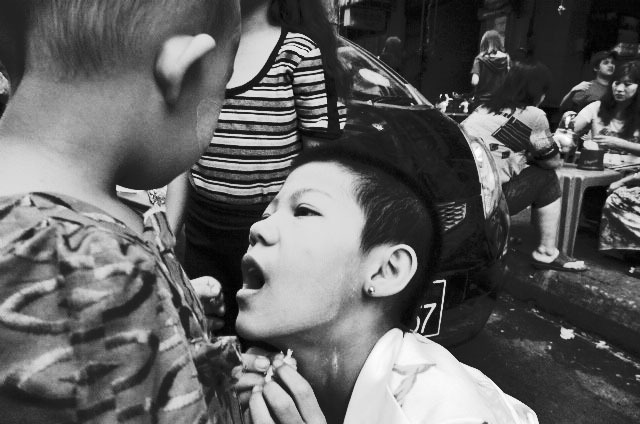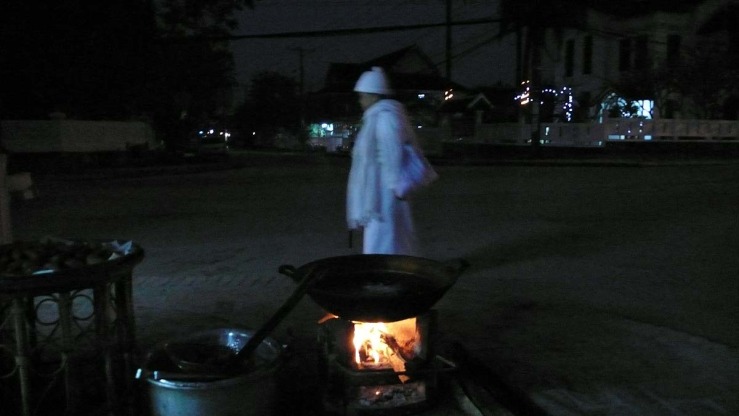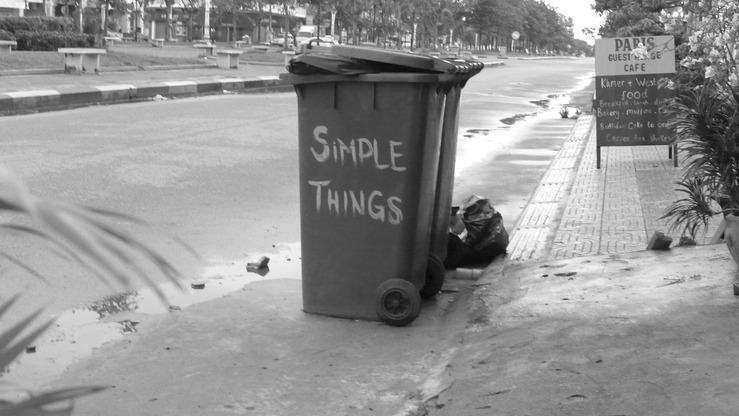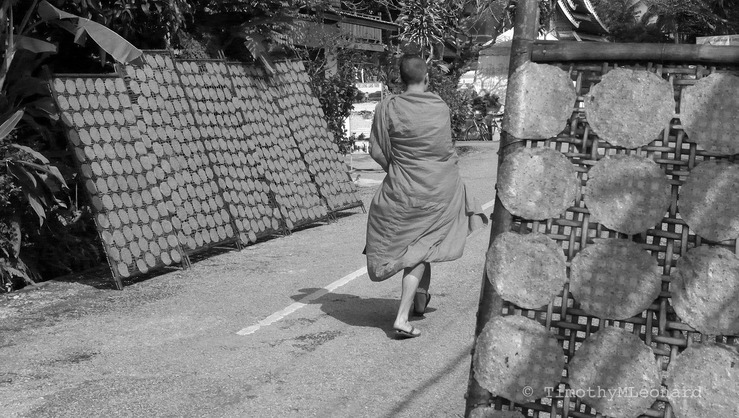Hammam
 02.3.2021 |
02.3.2021 |  tm leonard
tm leonard Twice a week I traversed a rubble path from #187 past plastic bags, small broken trees and rubbish to a hammam. The Turkish styled public bath cost seven dirhams or seventy cents.
Women left. Men right. A shy veiled girl accepted coins. I crammed clothes in a plastic bag and handed it to the smiling toothless attendant. He gave me two buckets made from old tires, reminding me of the souk zone where boys cut the rubber, hammered and sold them.
I pushed open a heavy wooden door. Three low-vaulted white tiled rooms had variable degrees of heat and steam. Men reclined on heated tiled floors or collected cold/hot water from faucets in buckets, soaping and scrubbing themselves.
Entering a heat mist dream of forms, I walked through the first two rooms to a space along a wall. I filled one bucket with scalding hot water, another with temperate liquid. Closing tired eyes I stretched out absorbing heat on my back. It penetrated skin, muscles and bones in a respite from poverty’s chaos and hospitality.
Sweating men scrubbed in steam and water music. Working out kinks an old wiry man bent a man’s arms and legs into pretzels. The skinny bald man worked wrists, elbows, and shoulder joints to the point of snapping them off a skeleton. Rolling a patron over he pummeled a spinal chord, slapped a back and bent knee joints leaving the man spread-eagled on tiled floors. Customers welcomed his torturous attention.
I soaped and scrubbed off layers of dusty skin with a rough hand cloth. Oceans flowed from tiles to drains.
I retrieved clothing, dried off with a sarong, slipped into fabric and gave the attendant a tip. The old man smiled, rolled his eyes shook his head. I dropped more coins into arthritic brown fingers.
“Shukran. M’a ssalama.”
Clean skin felt cool night air. The dusty path was filled with scooters, boys playing on abandoned rusty cars, scavengers probing trash and mothers dragging black gowns on the ground. Yellow slippers slapping earth flashed golden dust particles.
Children sang, “I never promised you a rose garden.”
A one-eyed mendicant looking for alms stumbled past.
Cafe men watched perpetual terrorism reports at full volume on a television hanging from a ceiling.
“Ah, Ahab,” said a smiling young waiter in a purple vest balancing his silver tray of cups and water glasses. “Coffee?”
“Yes, no sugar please,” gesturing I’d sit at a table outdoors on cracked pavement away from media. Dejected shoeshine boys tapped wooden boxes as their dark unemployed eyes inspected shoes of chronically unemployed men drinking endless tea.
Another waiter cut mint tea leaves, crammed them into a silver plated kettle, dumped in a brick of sugar, closed the lid and poured a light brown steady stream of tea into a small embossed glass. He poured it back into the pot. He put the pot, glasses, spoons and sugar cubes on a tray to be delivered to patrons.
A subtle red sunset spread across adobe walls. Atlas snow patched mountain ranges on the southern horizon turned pink. Women in billowing blue cloth tread sand from clustered stone villages to take a local bus to the shimmering Red City or sit on broken cement talking with friends.
Dusk and twilight married, creating night children. More field hands, more economic resources and more offspring futures destined for trades making $1.00 a day. Women sat talking on fractured pavement surrounded by trash. People discarded their lives going through it.
A small single tree in a patch of dirt epitomized local life. People had stripped off branches and leaves leaving a sharp broken piece of wood sticking out of the ground.
People wandered aimlessly or sat on hard packed earth. Unemployed men on haunches stared at dirt.
A fruit seller with green grapes on a rolling cart waved at flies circling a light bulb. A young man in his wheelchair poured bottled water over a handful of grapes. Water disappeared into dust around his wheels of fate. Savoring one grape at a time he observed boys weave past on broken bikes.
A bearded man paced the street collecting discarded cardboard in his recycled life. Cardboard made excellent cheap sidewalk seats, foundations in rolling carts to keep stuff from falling out, sun hats, beds and shop doormats after infrequent deluges.
Shredded telephone wires dangled from the wall of a telephone office as men lined up to make calls on the single working phone while holding mobile phones and punching digits.
Disconnected grease covered boys with their tools spilling into the street manipulated mammoth truck tires along broken sidewalks. The area buzzed as people with survival instincts scrambled to make a living.
On a side street two men unloaded shoes from the trunk of a car. Location - location - location. One seller spread a bright blue tarp on the ground anchoring it with bricks. His partner arranged cheap running, dress and casual shoes. No Adidas Berber shoes for these guys. They fired up a propane lamp.
After a day of oppressive heat residents prowled looking for a bargain and telling stories.
Adventure, Risk, Transformation

Burma








